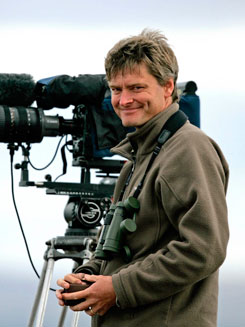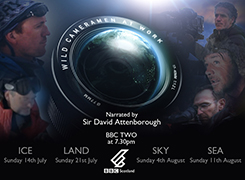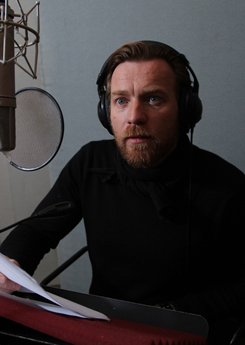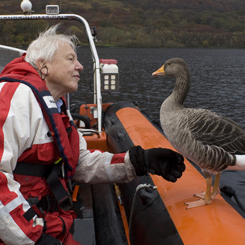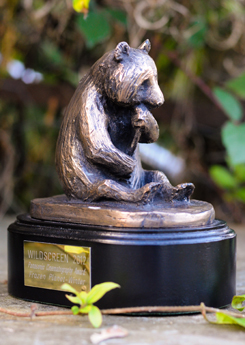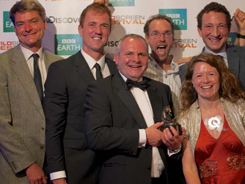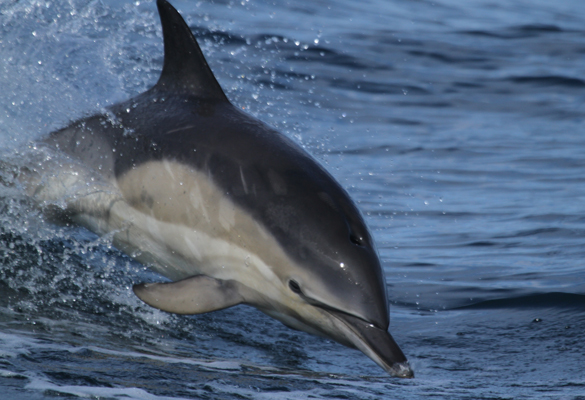
The spring was very busy. A huge pod of common dolphins which came close to Skye in May were a great bonus.
The first filming of the year for the Hebrides series was on Islay in January, mainly of the spectacular flocks of barnacle geese which spend the winter there.
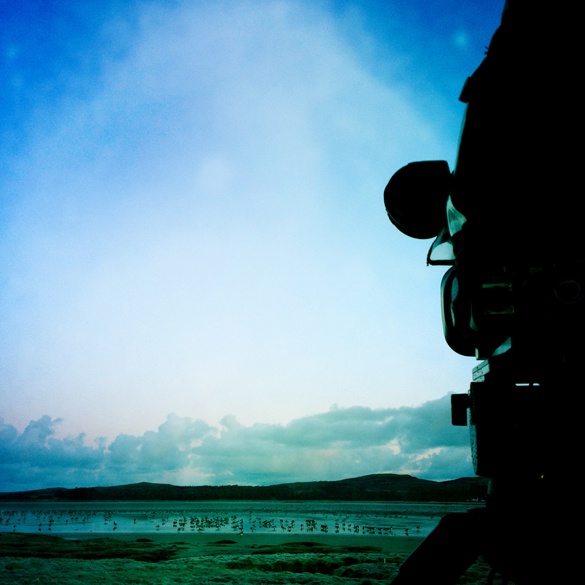
This picture is from the second shoot on Oronsay, a lovely island managed for birds by the RSPB.
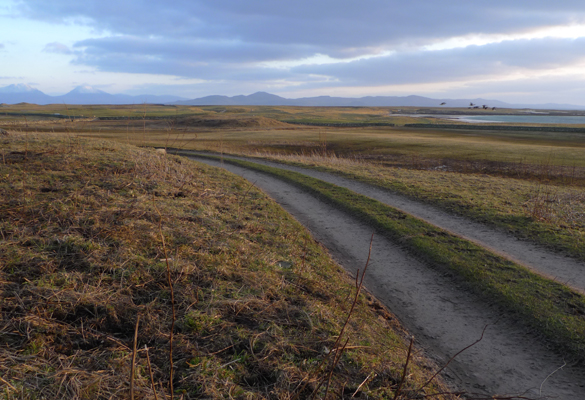
It has a small but important population of chough.
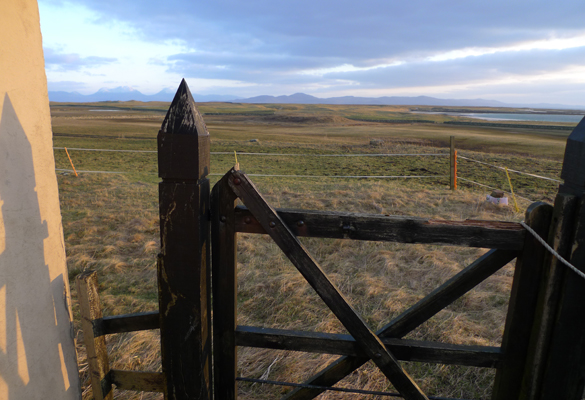
This beautiful calm spell of weather coincided with heavy snowfall in England.
It was odd to be so far north on such sunny days knowing there were chaos and sub-zero temperatures south of the border.
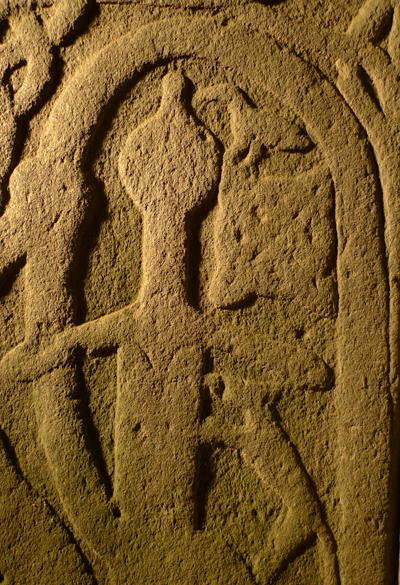
Chough have been on Oronsay for a very long time. There’s one carved on a grave slab in the old Priory.

Later on we filmed Colonsay’s beekeeper, Andrew Abrahams, who is trying to establish the island as a reserve for native black honeybees.

Moving the camera kit around on Colonsay like this was easier than carrying it.
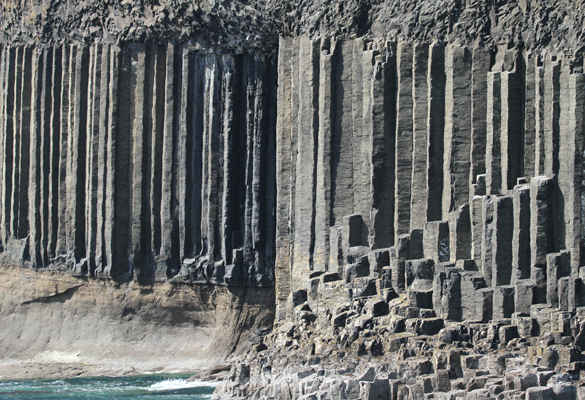
Staffa’s striking geology is a sign of its volcanic past.
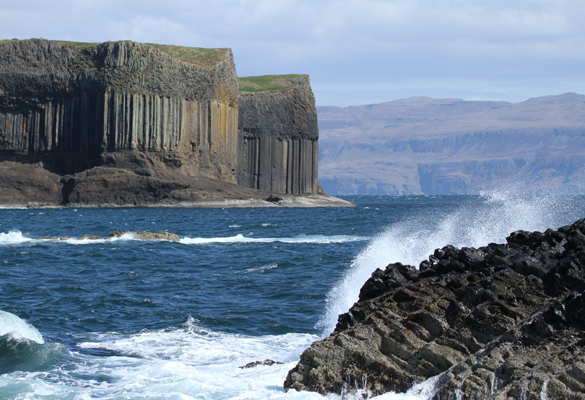
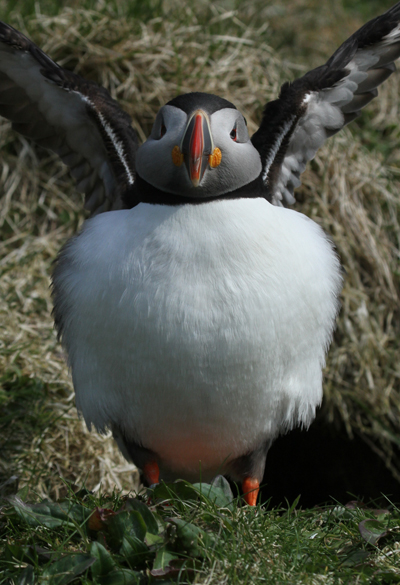
Many puffins nest on the nearby Treshnish Isles. It was a delight to film them just as they returned from the sea for the fist time.
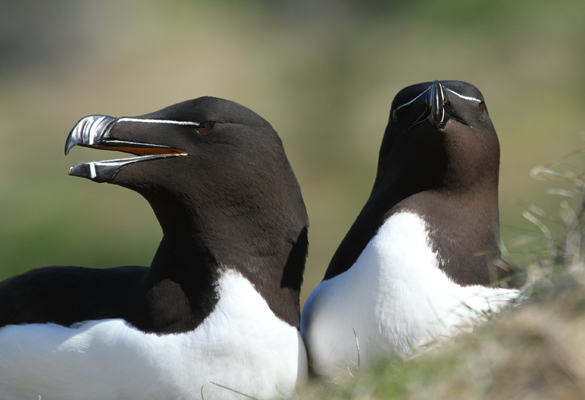
Razorbills come ashore at the same time and quickly reclaim their nesting places.
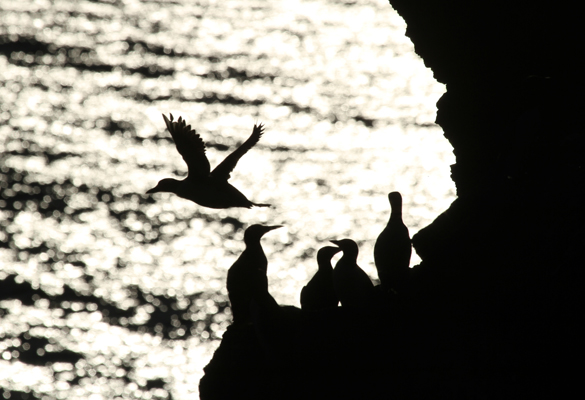
Guillemots crowd tightly onto all the ledges.
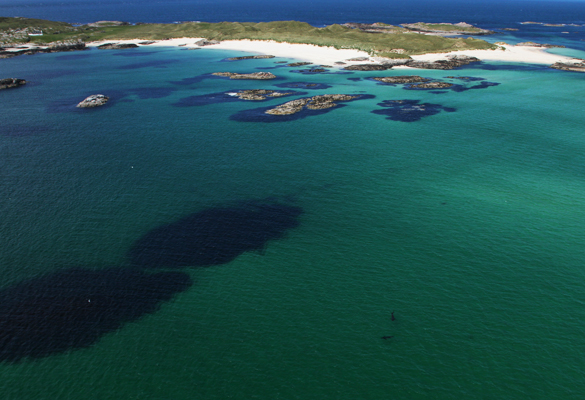
Coll, Tiree and Gunnar have beautiful shell sand beaches. There are two basking sharks in this picture too.

When the sand blows inland it fertilise the islands which helps make Tiree great for farming.
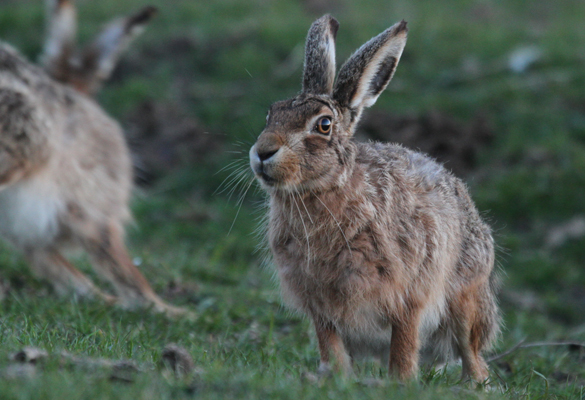
And fields full of rich grass are good for hares. Tiree has no foxes either so the hares thrive.

The weather in the Hebrides has been wonderful this spring which has made it possible to film some lovely aerials for the series.
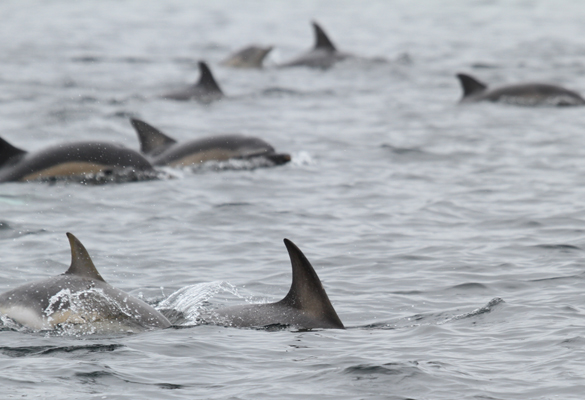
It’s also been an exceptional year for whales and dolphins. A pod of perhaps 1000 common dolphins spent several weeks around Skye and the Small Isles.
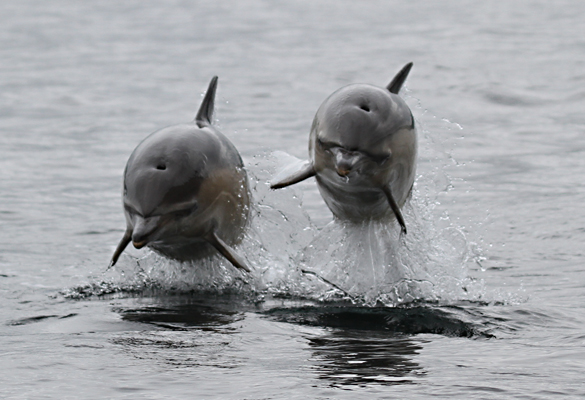
Mothers and quite old calves often travel together.

The dolphins were focused on feeding in the morning and socialised more later in the day, as well as playing in the wake of the boat.
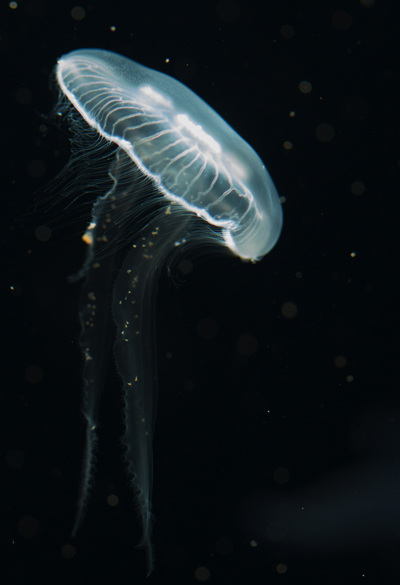
The Moon jellyfish is another animal we’ll be featuring in the series. Early in the year they bud off from tiny polyps anchored to rocks and grow quickly. By mid summer they will be as large as dinner plates.
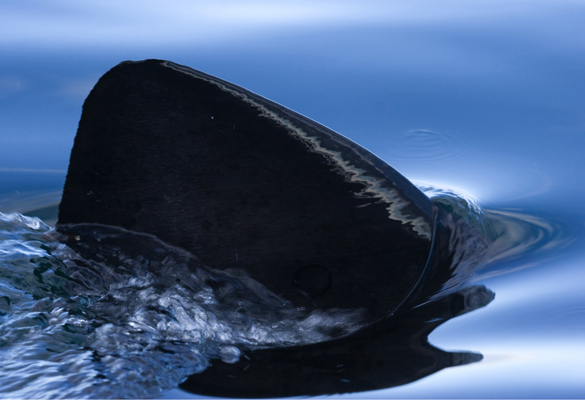
In recent years more basking sharks have been returning to the sea around Coll and Tiree. These are the second largest fish in the world, some of them up to nine metres long. Filming the sharks takes a great deal of planning and luck and was a highlight of the summer.
Distilleries | September 2011
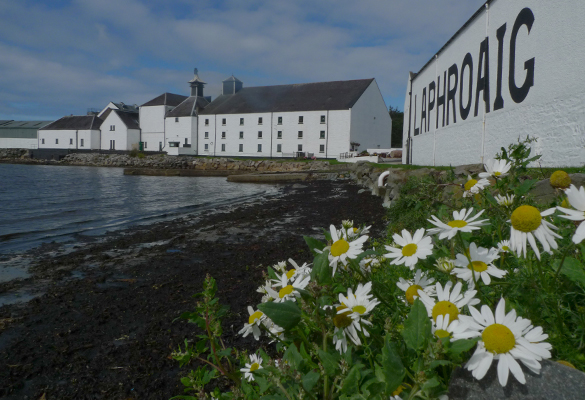
Swallows nest in the Laphroaig and Ardbeg whisky distilleries along the south east coast of Islay where the smell of peat and single malt hangs in the air.
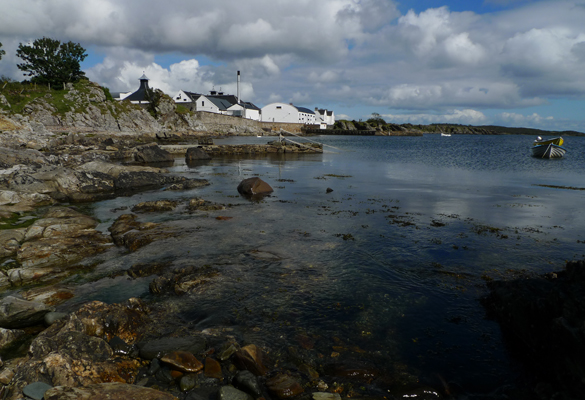
Beside swallows the Ardbeg distillery also has nesting house martins, a thriving colony of house sparrows which enjoy the spilled barley and otters in the bay.
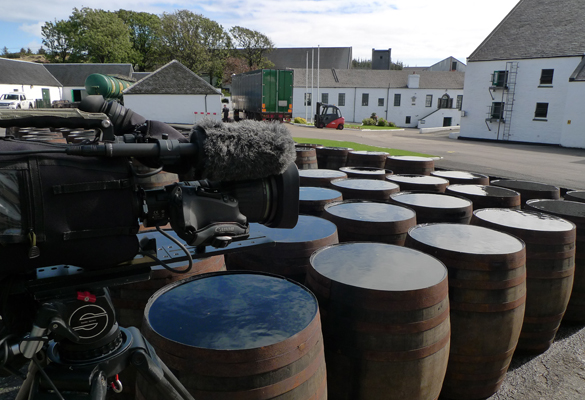
After their many years in the bonded stores the whisky casks lose some of their contents to evaporation. The whisky men call this the Angels’ Share.

To their credit the distilleries tolerate swallows’ nests and newly fledged swallows inside the distillery buildings – another form of the angels’ share
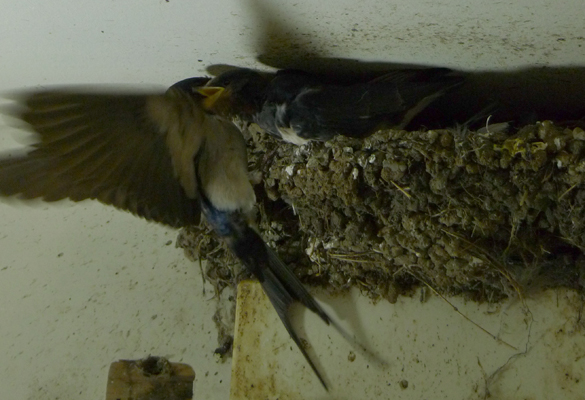
These swallows were nesting near the Kilchoman distillery. Their chicks were on the point of flying but they face an uncertain future with September’s equinoctal storms and their first flight to Africa ahead of them.
Basking sharks | August 2011
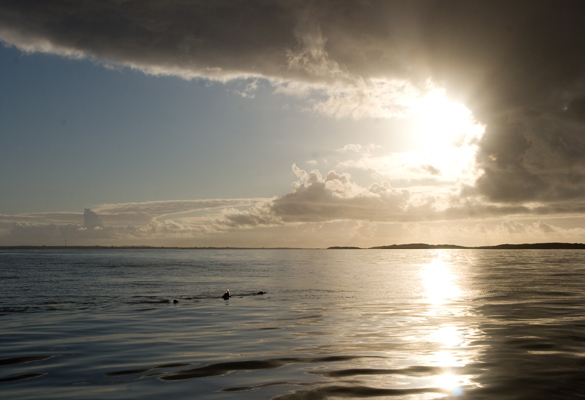
In calm and warm conditions the sharks’ tiny planktonic food becomes concentrated in “lanes” in the sea and the giant fish cruise up and down them, filter feeding.
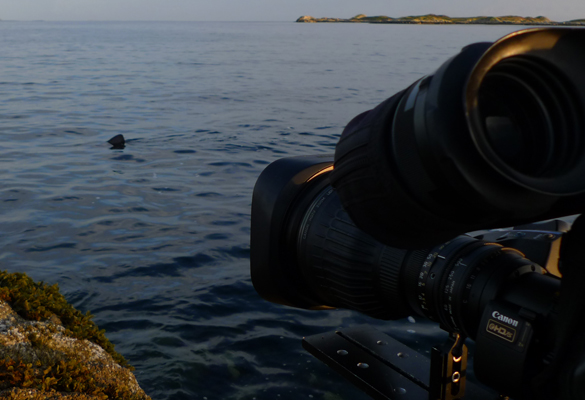
Sometimes this brings them very close to the shore. This one was only a few metres from the rocks.
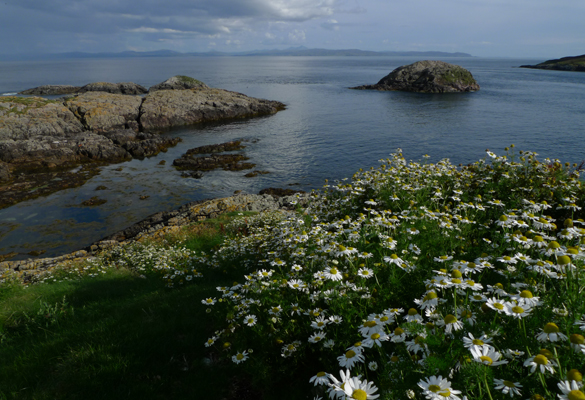
Coll is a beautiful island in the Hebrides with wonderful panoramic views of Mull, Ardnamurchan and the Small Isles.
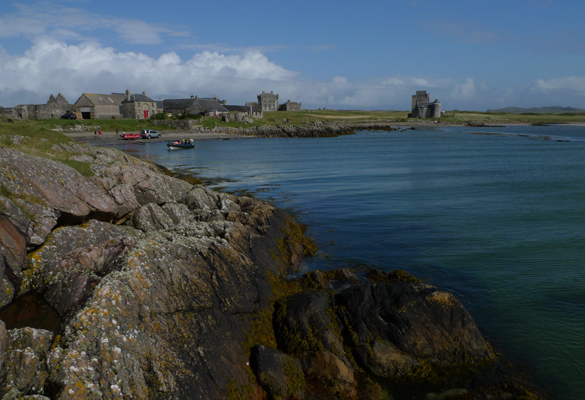
While filming the sharks the team stayed with Innes and Caroline Henderson in the remarkable castle which they hope to restore. Innes is a creel fisherman with a great interest in basking sharks.
The Outer Hebrides in high summer | June 2011
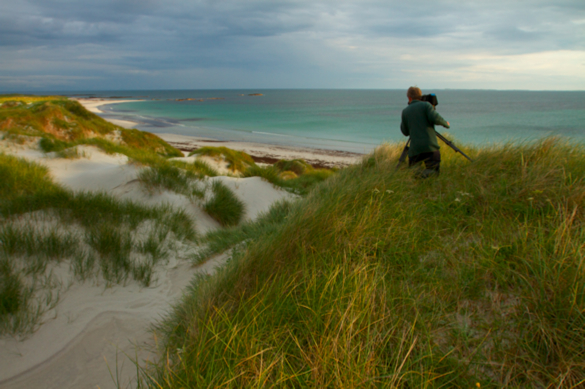
On north Uist in mid June the sun barely sets. The white sand beaches and dunes of the RSPB’s Balranald reserve are never more gorgeous and you need only turn around to enjoy the glory of the flowering machair.
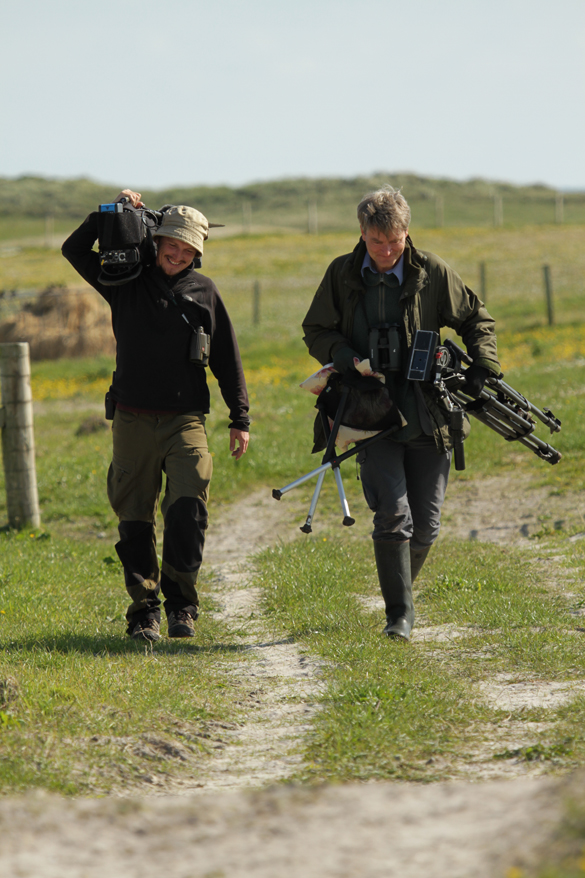
Jesse Wilkinson, an extremely good naturalist, has been assisting with the filming of the series. Photo courtesy Jesse Wilkinson
Spring storm on the Isle of Mull | May 2011
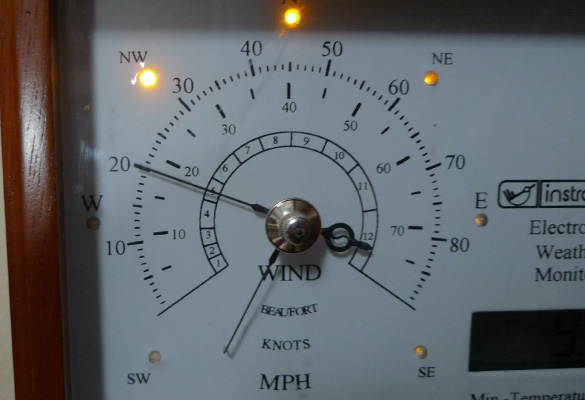
The anemometer’s maximum speed needle (at the bottom of the dial) was blown so far off the end of the scale that it probably would have read 110 knots if the numbers went that far. A rare strength even for a winter storm, and this one was in May!
John was filming at Ardalanish, a beautiful organic farm on the Isle of Mull when the storm blew in.
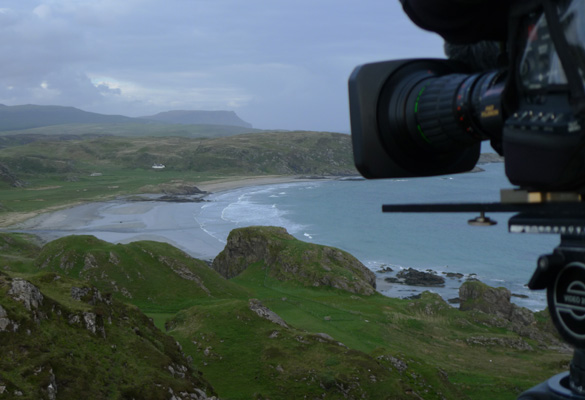
This picture doesn’t do justice to the wind which made it hard to keep the camera on its tripod. After the storm the beach was covered two feet deep in broken kelp. Aeneas MacKay who farms Ardalanish collected it by tractor to fertilise his fields.
White tailed eagles on the Isle of Mull | Winter 2011
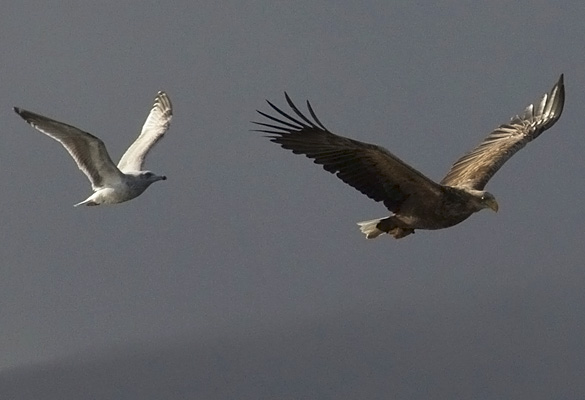
This male white tailed eagle was scanning the tideline for anything edible. The gulls were making a great deal of noise and followed him around until he returned to his perch in a tree.
The Isle of Mull is a real hotspot for eagles.
Photo courtesy Jesse Wilkinson.


